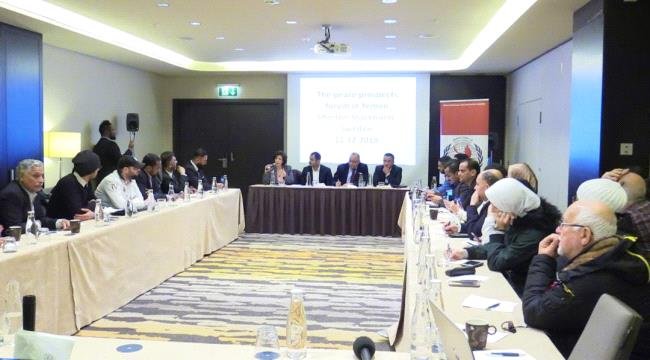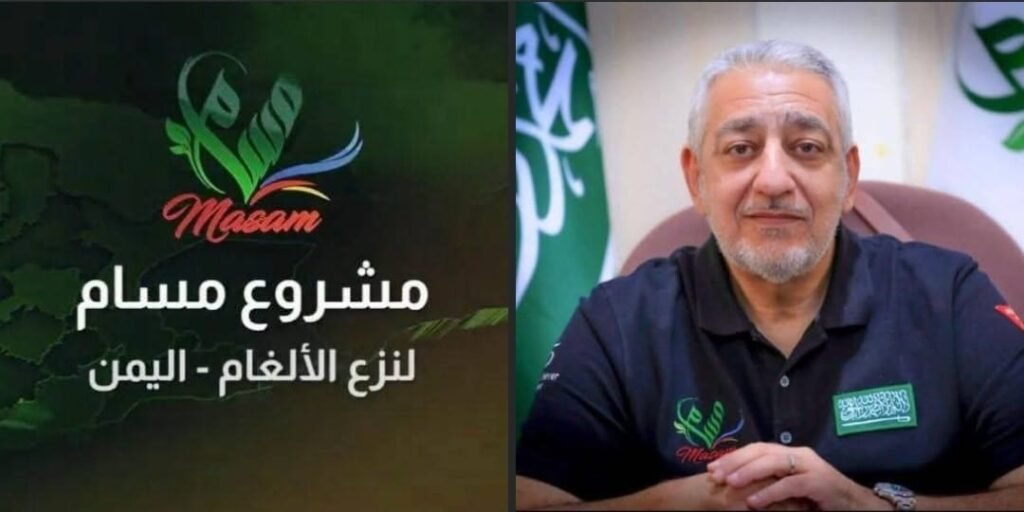
A seminar titled “Stockholm Consultations and Prospects for Peace in Yemen” was held this morning in the Swedish capital, Stockholm. The seminar addressed several issues related to the prospects for peace in Yemen, as well as the aspirations of Yemenis for security, stability, and economic and social reconstruction.
The seminar also put forward a set of recommendations to be presented at the Yemeni peace consultations in Stockholm, focusing on the future of a peaceful resolution in Al-Hodeidah.
The seminar was organized by the Yemeni-Dutch Center for the Defense of Rights and Freedoms, in partnership with the World Federation of Yemeni Communities and allied human rights organizations working for peace.
During the seminar, Dr. Khaled Abdul Karim, President of the International Center for Media and Development, emphasized the importance of the seminar’s topic, which is held concurrently with the Yemeni peace consultations in Sweden. He noted that it aligns with the aspirations of Yemenis to overcome the consequences of war and to address the severe humanitarian crisis the country is facing.
For her part, Ms. Bushra Nasr, President of the Saba Consulting Center in Sweden, presented a paper titled “Recommendations for Building a Peace Economy.” In her speech, she provided an overview of the Yemeni economy and the role of militias in its collapse. She also discussed the resources that the militias have used to sustain the war and offered several recommendations for building an economy that would contribute to the construction of peace.
Mr. Nasser Al-Qaddari, a researcher in international law and President of the Yemeni-Dutch Center for the Defense of Rights and Freedoms, participated in the seminar with a paper in which he discussed Iran’s and the Houthis’ exploitation of the weak oversight on international shipping lanes near the port of Hodeidah to smuggle weapons of all types, according to official investigations. These include modern and advanced military technology that is not available to the Yemeni army.
Al-Qaddari also addressed the methods used by the Iranians to supply the Houthis with weapons, particularly through the port of Hodeidah, a process that has been ongoing for many years, even before the war.
Mr. Khaled Al-Fifi, President of the Youth Initiative for a New Yemen, participated in the seminar with a paper titled “Current Challenges Facing the Peace Process.”
He divided the challenges into three levels:
- Local Challenges: These include the Houthi’s intransigence, their continued use of violence, their lack of response to UN resolutions, and the absence of support from the international community to assist the legitimate government.
- Regional Challenges: These are related to the various regional agendas in the anti-Houthi camp, which complicate the peace process.
- International Challenges: These involve the desire to prolong the war in Yemen as a means to pressure the Gulf countries, particularly the Kingdom of Saudi Arabia, to achieve purely economic interests, while ignoring the humanitarian crisis.
Several interventions were made during the seminar by participants, who discussed the details of the UN initiatives presented at the consultations. As human rights advocates, academics, and civil society organizations, they expressed their call for peace consultations in Sweden to result in solutions that meet the hopes and aspirations of our people for a just and comprehensive peace.


